Communal Harmony: This Muslim-Owned School in Gujarat’s Countryside Shows the Way
by Mahesh Trivedi
reposted from Clarion India
Minority education institutions are a dime a dozen in the western Indian state of Gujarat but Dr Nakadar Institute of Knowledge (DrNIK) located in a one-horse town is in a class of its own.
Its largest leafy campus, record results in crucial examinations year after year, up-to-the-minute facilities for down-at-heel children of unlettered parents living in nearby sleepy hamlets, enviable communal concord and enrolment of the highest number of Hindu students for a Muslim-owned school, etc, all set this distinguished phronistery apart from other ho-hum, run-of-the-mill schools.
Nestled in serene, sylvan and salubrious surroundings and away from the hustle and bustle of urban life, DrNIK’s 25-acre, biggest-of-its-kind campus in Nandasan village in Kadi taluka of northern Mehsana district boasts of an expansive, out-of-this-world playground for its 1,000-odd bright sparks and a 40,000-square-foot, two-storied, eye-catching school building housing 30 airy classrooms, a 16,000-square-foot multi-purpose hall, a high-tech, well-stocked library, a 16-room hostel, besides new-fangled staff quarters.
“Dr Nakadar’s open-to-all school is a dream come true for poor, illiterate parents living in nearby villages who always wanted their wards to study in a world-class English medium school, and for nominal fees at that. After all, they are cash-starved laborers, farmers, woodcutters, construction workers, blue-collar factory daily-wagers, etc. who have not learned even the three Rs of education,” says Nandasan’s highly-qualified, young village council chief Saiyad Anish Mirshabmiya, himself an alumnus.
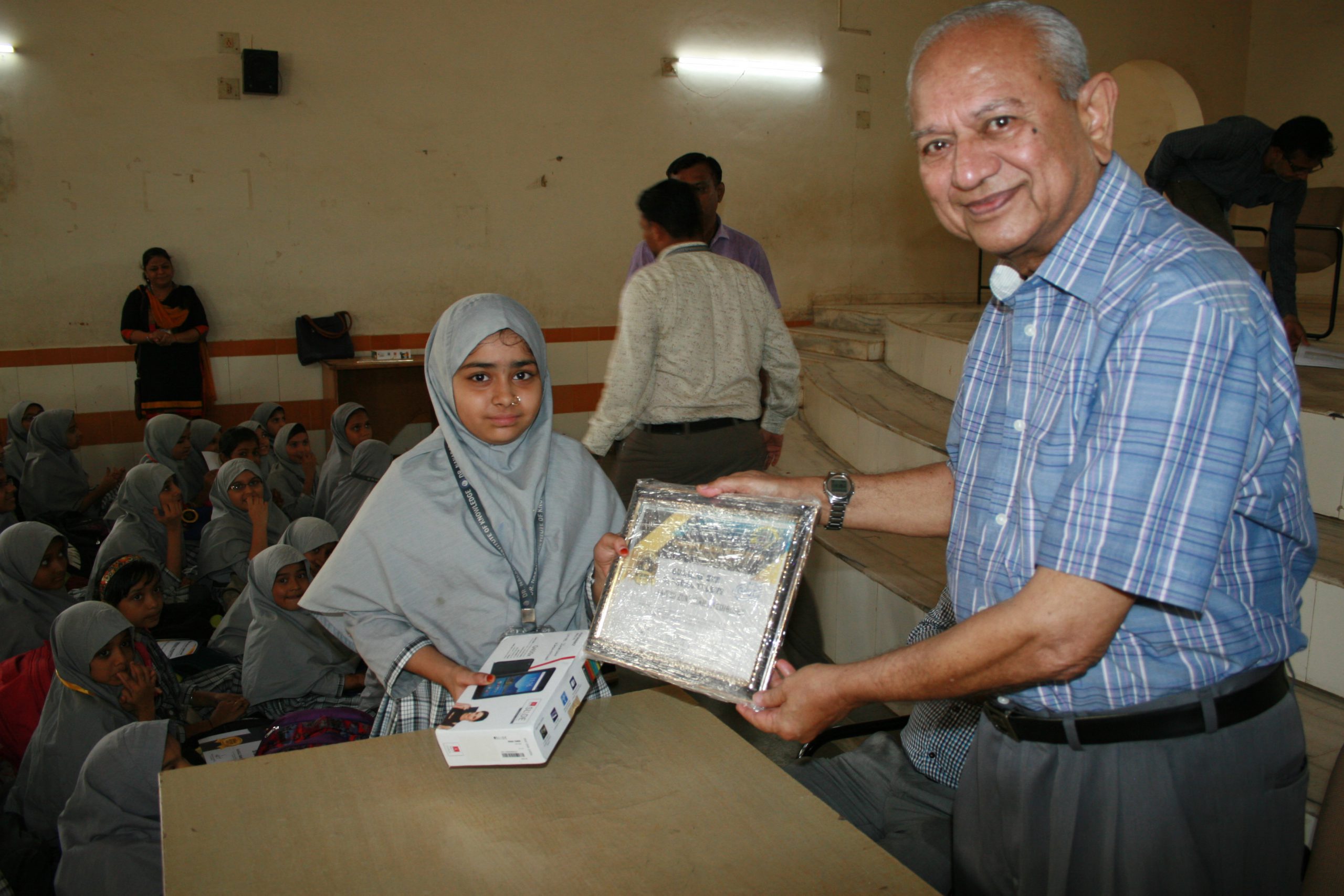
Dr.Nakadar founded DrNIK at Nandasan in 2004
Not long ago, when results of the all-important Class X (SSC) School Board examination were declared, some 300 of the state’s 3,500 high schools registered a spectacular 100 per cent success but DrINK was the only centre of learning which achieved this distinction for the 11th consecutive year with its quick-learner students passing with flying colours yet again—much to the consternation of its hallowed competitors.
What’s more, Hindus constitute as many as 15 per cent of boys and girls as well as teachers in this kindergarten-to-Class XII school founded in 2004 by United States-based octogenarian philanthropist and famed cardiologist Dr. Abdul Rehman Nakadar, while no other small or big minority educational institution in the Bharatiya Janata Party-ruled state can claim to have on its rolls even five percent students or staff from the majority community.
After the bloody communal riots blotted Gujarat’s copybook in 2002, Hindus and Muslims have been leading a cat-and-dog life in Prime Minister Narendra Modi’s home state with the minority community now living in grid-locked ghettos and its crackerjack kids also still struggling to enroll themselves in Hindu-owned prestigious schools.
But at DrNIK, students of the two communities—as also teachers–have learned to freely mingle with each other—hitting the books together, exchanging notes, sharing lunch boxes, high-fiving the teammates in the boundless recreation ground and lending a helping hand to each other when it comes to organizing a science exhibition, an educational trip, a tree plantation campaign or street plays on India’s burning issues, and other cultural activities.
“I or other Hindu teachers never feel out of place in this school because, unlike our counterparts elsewhere, senior Muslim teachers, the principal, the campus director or trustees never call us names but use honorifics like ‘Sir’ and ‘Madam’ as suffixes after our names,” points out Chandrika Joshi, adding that the staff members also visit each other’s homes in good times and bad.
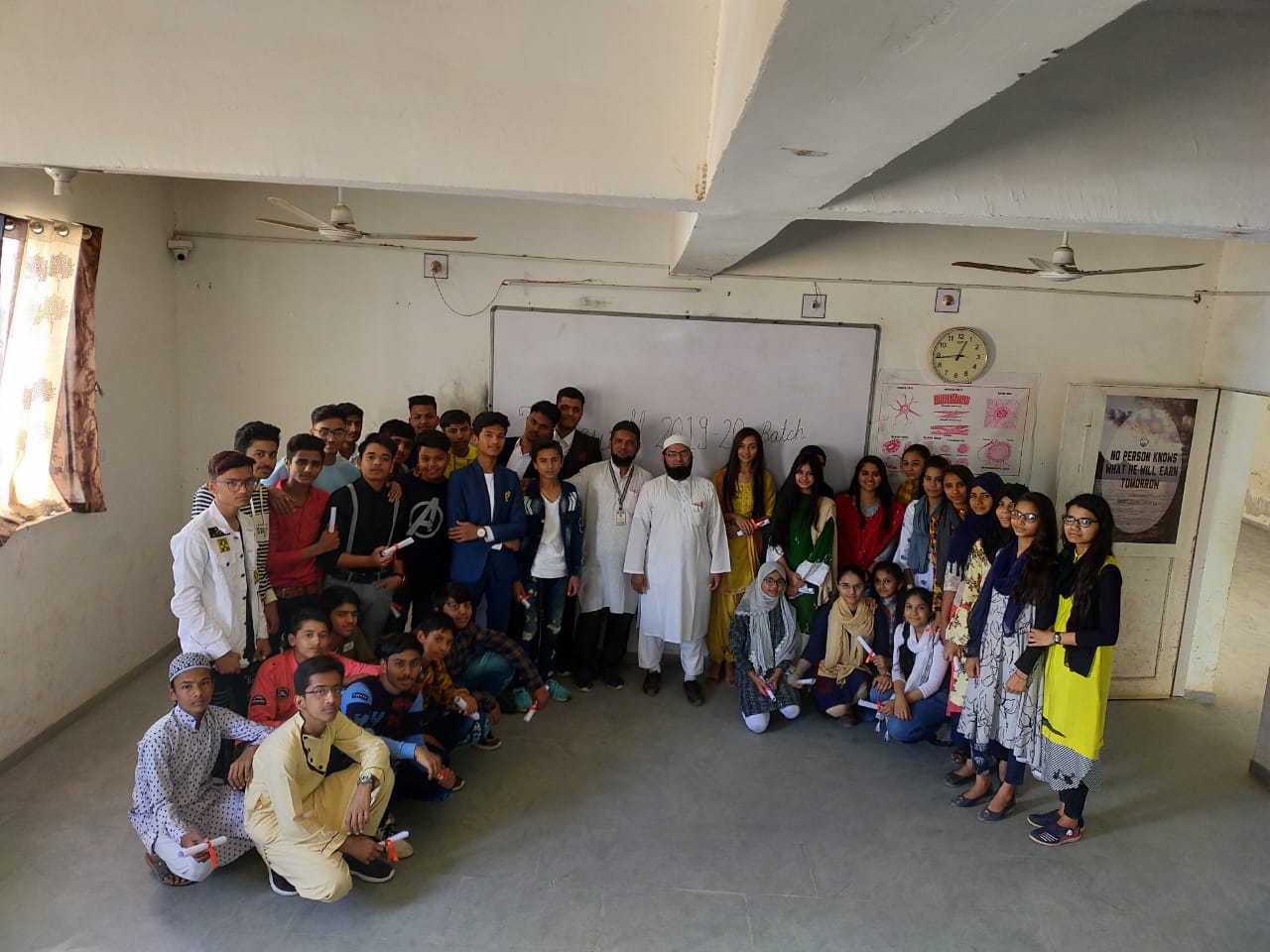
DrNIK is Gujarat’s only school that has been recording 100 percent results in SSC Examination for the past 11 years.
Indeed, the fact that the marathon task of dreaming up and organizing the Annual Day function is handed over year after year to a Hindu teacher, highly-qualified Jitendra Parmar, shows that the management cares tuppence for a staffer’s caste or community but values his or her prowess more than anything else.
Says Parmar: “Even at 83, Dr Nakadar is a class act. He is based in the US but never forgets to send greetings to Hindu staffers on their festivals or other auspicious occasions, and this really boosts our spirits. And when he is in India, he makes it a point to meet parents and gives them a patient hearing. ”
In fact, believing in strong parent involvement for a child’s educational process, DrINK is the only school with international standards which organises a Mother’s Day on first Saturday of every month to provide an opportunity to functionally illiterate mothers for visiting the school, sitting in the classroom with their children for hours and discussing their achievements and problems.
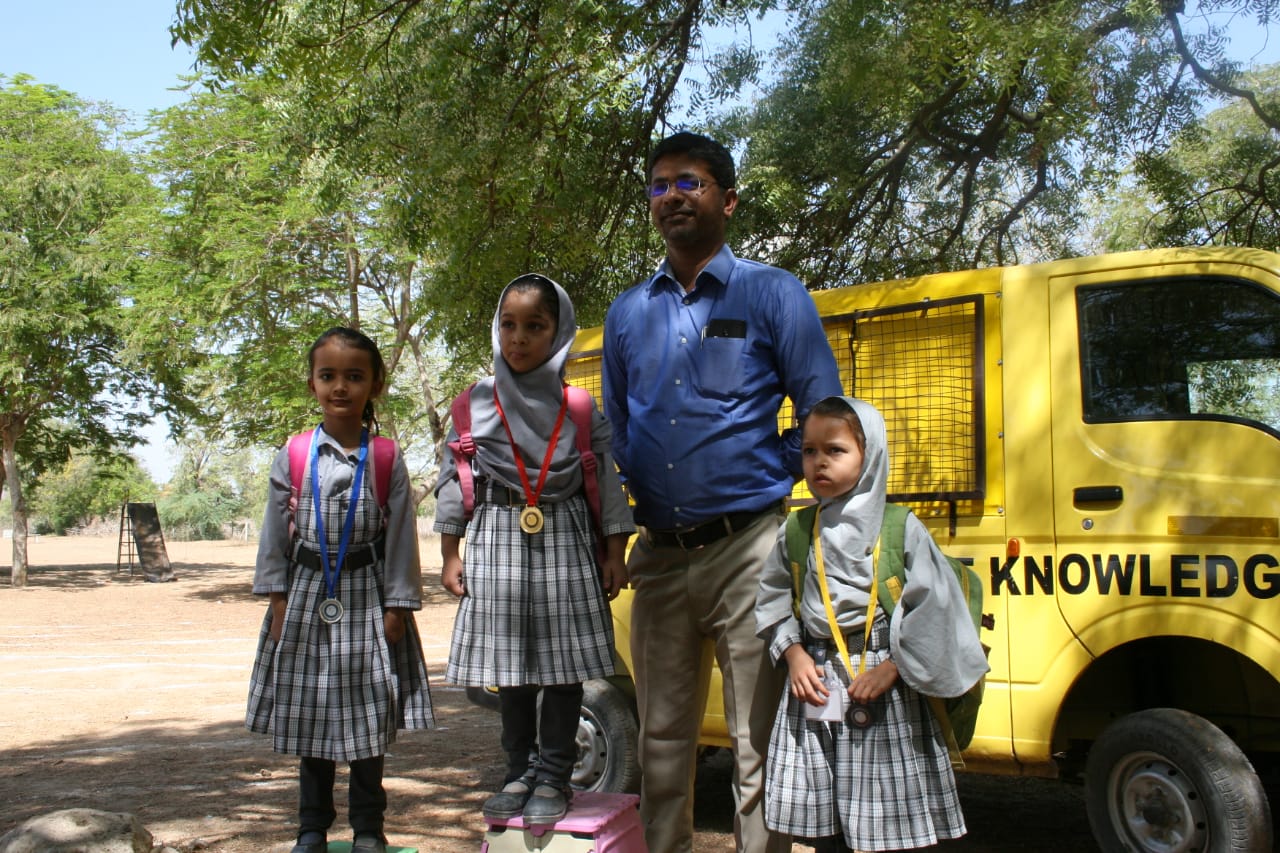
Amanullah Shethwala, DrNIK’s campus director, is a computer science expert
The result is that these analphabetic women have now themselves turned serious bookworms and, indeed, the literacy rate of Nandasan and some 70 nearby villages have also shot up to an astounding 74 percent over the years.
Hindu families in and around Kadi taluka, who gave a wide berth to DrNIK when it opened in 2004 after the 2002 anti-Muslim pogrom, have been making a beeline for their wards’ admission in this school for the past several years, and now take pride in seeing their children going to colleges for higher studies. Truth to tell, some of these brainy alumni are not just book-smarts but have settled in different parts of the world, having carved out a niche for themselves in their respective fields.
“Dr. Nakadar and his family always dreamt of creating an educational institution to uplift the standards of education and to motivate families to send their children for higher studies”, informs Principal Imran Diwan, who can read any student like a book.
Even in these corona times when mammon-worshipping school managements in Gujarat are demanding astronomical fees from hard-pressed parents, leading to a long-drawn legal wrangle in the High Court, DrNIK’s class teachers never read the riot act to the penurious children by insisting on seeing the color of their money.
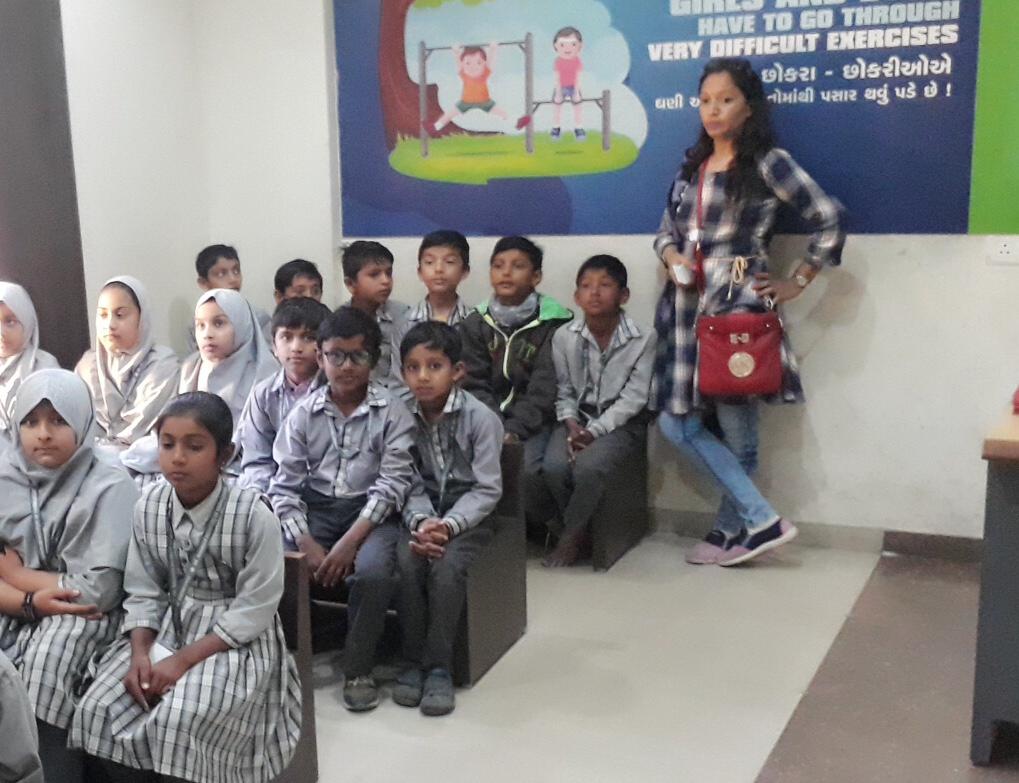
Chandrika Joshi is one of the five Hindu teachers
Not just that, campus director Amanullah Shethwala, a computer science expert and former head of the department of E-commerce in a prestigious college, also told Clarion India that 30 per cent of the students living on the breadline were yet to pay even last year’s fees.
“After all, DrNIK is a warm and tightly-knit learning community. Its basic aim is to create, establish and offer opportunities to all children, regardless of age, gender or community to achieve a balanced cognitive, emotional and psychomotor development,” sums up Shethwala.
All said and done, the pacifistic students and teachers of this ‘school of communal harmony’ in Gujarat can surely teach a lesson or two to Hindu and Muslim fanatics in the Prime Minister’s homeland.
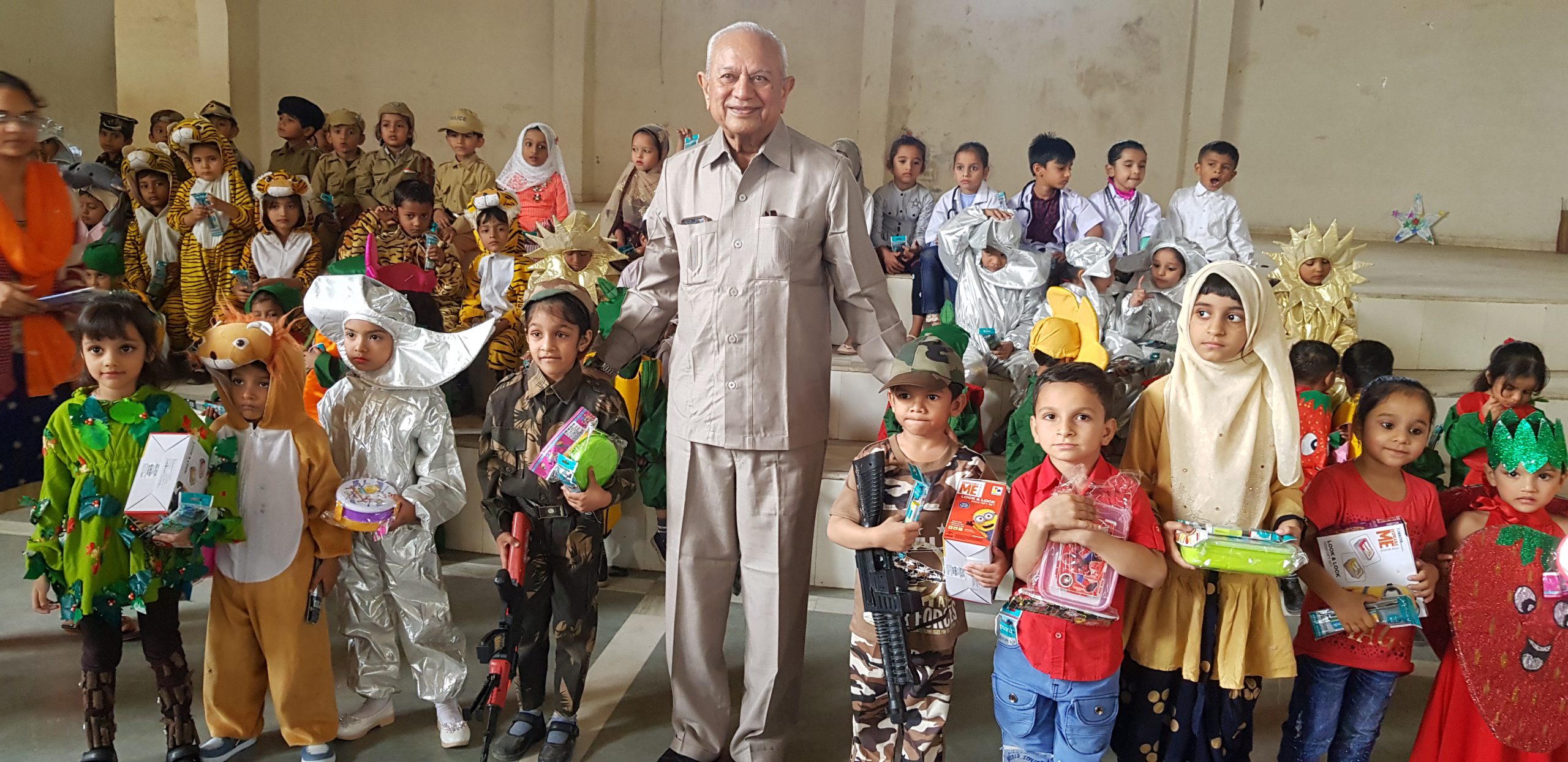
Dr Nakadar is happy with the school’s progress
Mission on Target, Says Dr. Nakadar
Dr Abdul Rehman Nakadar, the Gujarat-born United States-based cardiologist who founded Dr Nakadar Institute of Knowledge (DrNIK), in 2004, is happy to see the spectacular progress made by the school. He has helped and guided communities in building hospitals, schools, and other social institutions in the USA and India. In an email interview, the self-effacing educationist-philanthropist elaborates on the purpose behind his pet project, its success in transforming the community in the region, plans for the next two years, and the new education policy.
How did the idea of setting up the school germinate?
I have been involved in educational activities since 1974. The first Dr. Nakadar Gold medal was announced by the recently-formed community organization (Patni Sunni Jamaat Kawme Bavahir Federation) living in 14 cities in different districts of Gujarat. It showed a marked improvement in the community’s literacy rate.
Later in 1989, when I founded the American Federation of Muslims of Indian Origin (AFMI), we replicated the AFMI medal programs for all the states in India. For my educational message to continue, even after I am gone, I founded Dr. Nakadar Institute of Knowledge so that my educational message continues to improve the beleaguered community’s life.
Did you face any opposition from the Hindu population in Nandasan in 2004 given the fact that riots happened only two years ago?
No, I did not face any opposition from the Hindu community or anyone else. On the contrary, brothers from the Hindu community helped us get approval from the educational board of Gujarat for Higher secondary. I attribute this to the free medical camps that I conducted during my yearly India visit. Many families from the area had been my patients.
Are Muslims in and around the school better off in education as you had desired and visualised?
Yes, I am happy with how the institute has progressed, barring some minor ups and downs. I am also happy as the school has been achieving 100% results in SSC Board exams in English medium, and that, too, by the students whose parents, majority of them, don’t even know what ABC is.
I am more optimistic now than ever before as the dynamic Amanullah Shethwala is at the helm of Dr.NIK, and the dedicated trustees led by Dr. Siddik Kadiawala, M Saleh Nakadar, A. Kader Shethwala are in charge. The mission is on target as far as my vision is concerned. My dream for this institution is that it becomes a university in the future, maybe after 70-90 years, or whatever it takes.
The community around the surrounding villages is happy seeing their children going to colleges and acquiring higher degrees, which they had never dreamt of. Some of those children are now in New Zealand, Australia, Canada, Europe, etc., and other parts of India’s different states.
Plans for next two years?
In a couple of years, I would like to see the implementation of a skilled development/vocational training program, to be followed by graduate-level courses, and professional faculties, in due period.
Your views on the New Education policy?
Overall, the New Education Policy is a welcome change for the better. There are more pros than cons. Raising the budget outlay from 4% to 6.6%, skill coding, and vocational integration from Class VI, digital learning, more holistic, and disciplinary approach at the undergraduate level are all welcome signs.
However, the main problem seems to be the introduction of teaching in mother tongue till Class V. Private institutions (especially English Medium) often employ out-of-state teachers (with different mother tongues) to maintain the school’s standard. Such a policy will enhance or widen the existing disparity between the students from public and private schools. Another drawback is that leaving out the medieval and 20th-century history and historical figures is not a holistic approach.
(Dr. Nakadar was to attend an international educational convention in Ahmedabad during December 19-20 but the annual event has been postponed due to the covid-19 pandemic.)






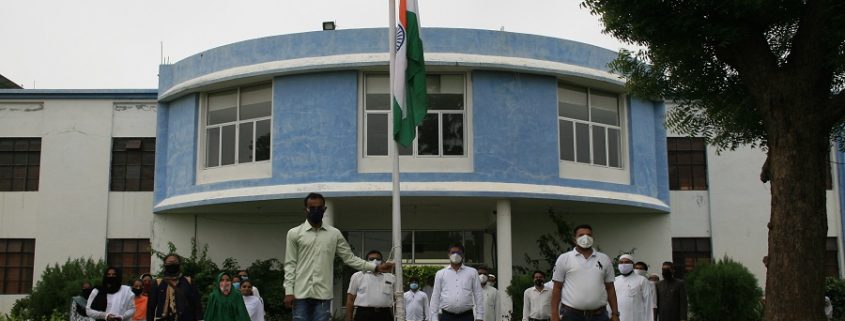
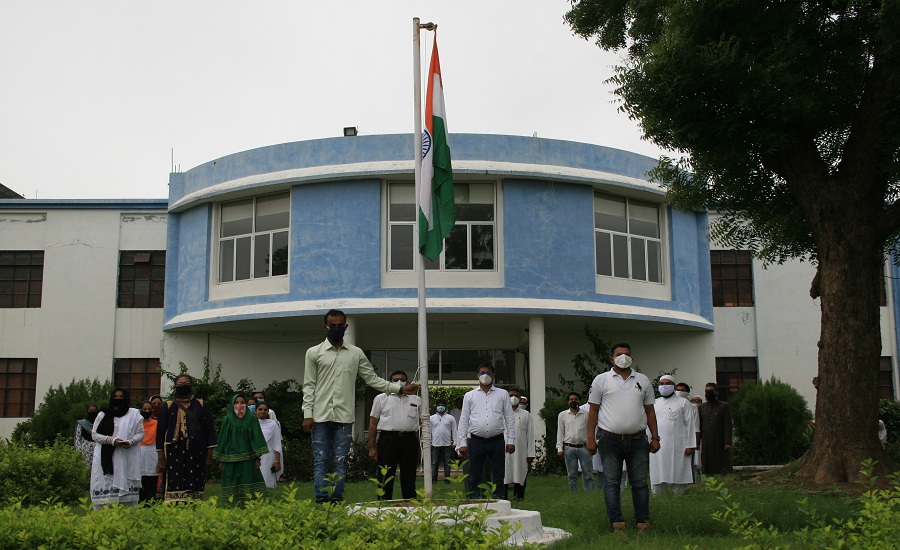


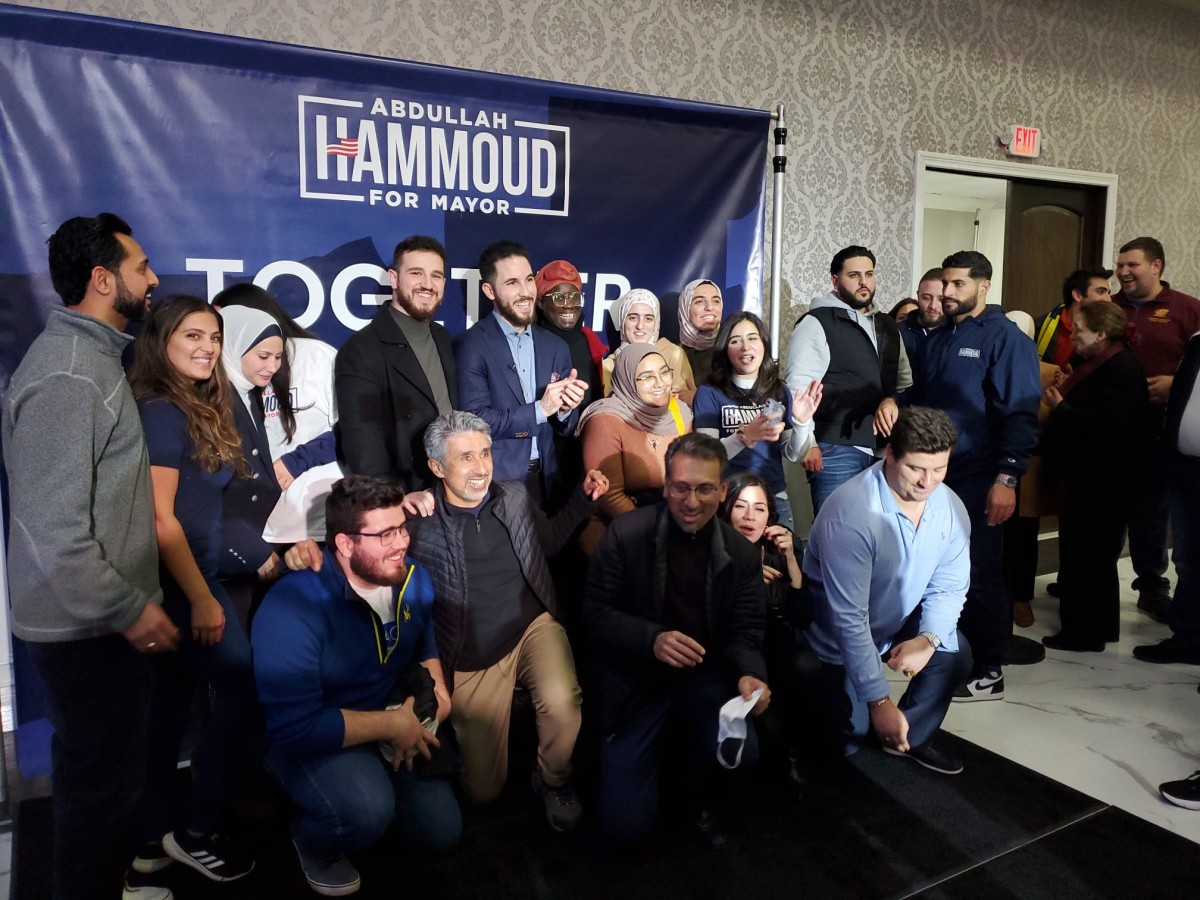
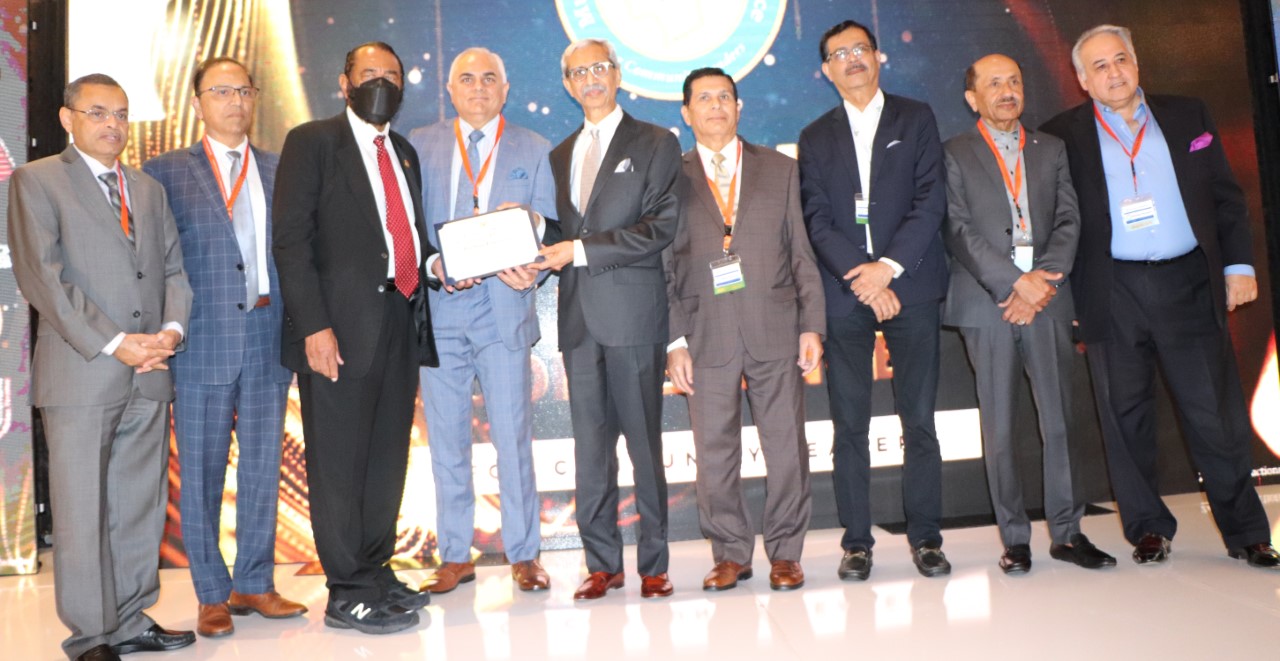

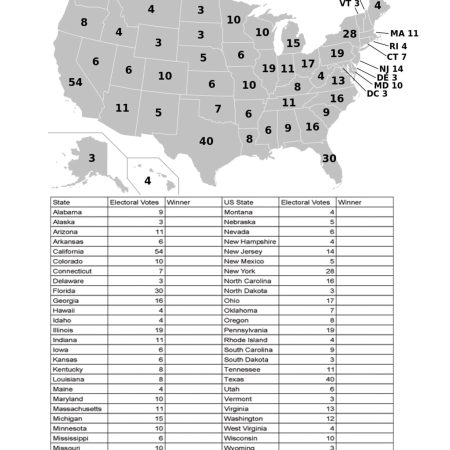
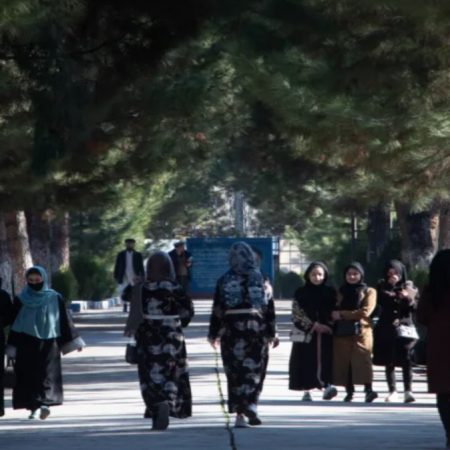






2021
2,076 views
views
0
comments